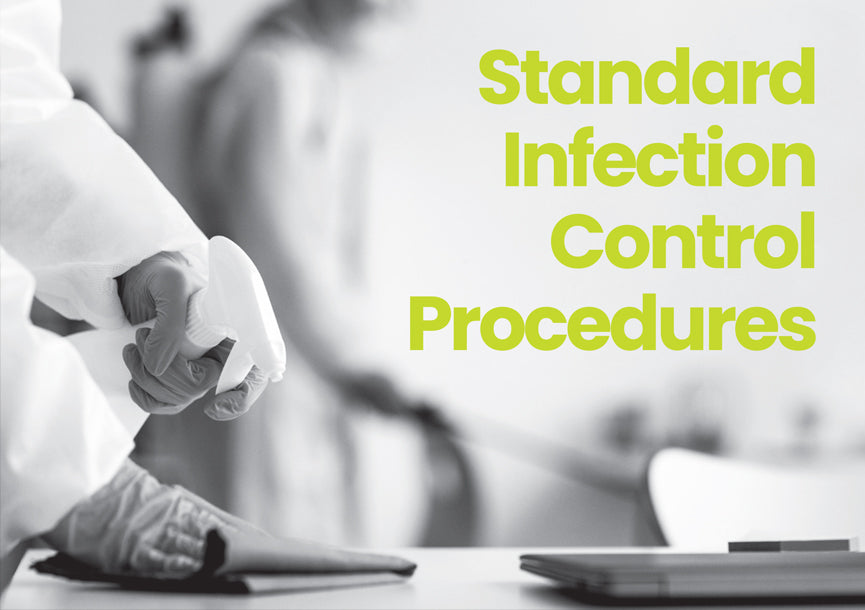Standard Infection Control Procedures

Infection control procedures are methods and practices that are implemented into daily life/work to maximise the protection against harmful pathogens such as viruses and bacteria. It also serves to minimise the spread of these germs to other people and risk any further infection.
Healthcare and food sectors and facilities maintenance organisations often have detailed and thorough infection control procedures already in place to help protect their patients and staff, however it is recommended that the general public start to use some of the following in their daily routine.
While this may seem obvious, a lot of people fail to wash or sanitise their hands when they return home from being in public. Washing your hands after you return home, after all bathroom trips, when you are dealing with waste, or any time your hands and skin come in to contact with foreign substances is the best chance to prevent contracting any harmful or dangerous infections.
The term ‘body fluids’ does not just refer to faeces or vomit, but also mucus and blood. Any body fluids should be disposed of thoroughly, and any surface the fluid has come into contact with should be disinfected as soon as possible.
All surfaces that are regularly touched need
to be sanitised ideally multiple times a day,
especially if surfaces are in a communal
space such as a kitchen, bathroom, or office.
A full clean of your home should be completed
at minimum every month. This would include
sanitising objects like door and cupboard
handles, stair handrails, taps, and communal
objects like television remotes, keys, and chargers
(follow proper instructions when cleaning
electrical items).
Following on from the previous procedure, any open wounds should be cleaned with the appropriate disinfection solution, all blood should be disposed of, and the wound should be covered and only touched with freshly washed & gloved hands. This will prevent any foreign substances or pathogens from entering your body through the wound and prevent any spread of germs to other people
It is always important to understand proper food hygiene, even if your job does not entail working with food. Proper food hygiene should be practiced at all times when handling or cooking food, even in the home. Ensure hands are always clean, and wash hands after handling raw or cooked meat to stop the spread of infection. Different chopping boards should be used for vegetables and meat to prevent cross contamination, along with different knives, which all should be both washed and properly sanitised before putting away. Infections caused by bad food hygiene are some of the most common causes for contracting viruses such as Norovirus or even food poisoning.
Personal items such as towels, hygiene items like toothbrushes, face cloths or loofas should not be shared.
Selection of the Medi9 Product range:
More details on the entire Nine Group
range can be found on our website:
ninegrp.com/collections/medi9


















